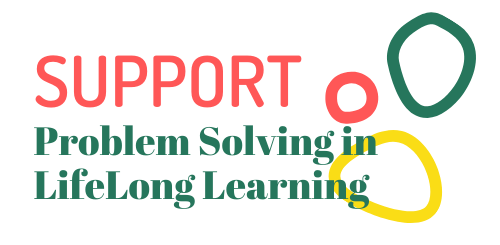Solving the Problem: Activities for Learning Groups
Title of activity
AGILE Approach
Working on the activity – Suggestions
Title of activity
ProfilPASS
Working on the activity – Suggestions
ProfilPASS is a set of questionnaires that reply to several activities of the life span using Narrative mode. It is being used form the German employment agencies and adult institutions to help people better understand their skills when looking for a new job or looking for further vocational training and education. It is addressed to anyone that feels that they need counselling around education and work related issues.
Target group:
Solving the Problem: Self-reflection (educator’s reflection)
Reflecting on the changes in the group dynamics
—
Points for Discussion with your Organisation
Suggested Training Course available online
